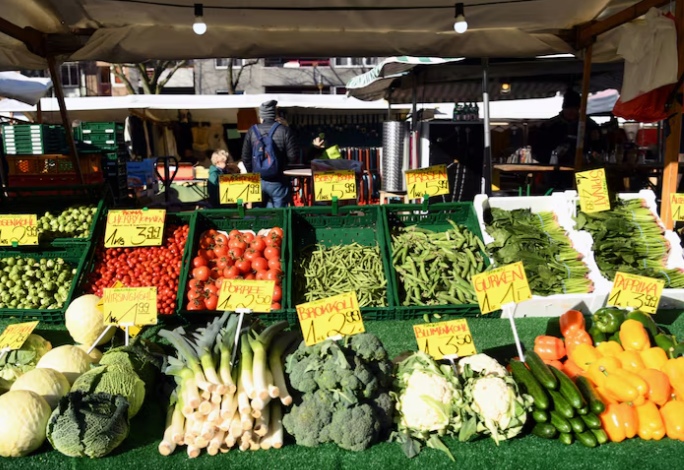Inflation in the eurozone has once again become the subject of lively discussions in economic circles as its level exceeded expectations and reached 2.6 per cent in July, 2024. This unexpected increase has raised a number of questions and concerns among economists and investors alike, POLITICO reports.
The underlying picture also shows no signs of improvement for the third consecutive month. Excluding more volatile items such as food, alcohol, tobacco and energy, inflation came in at 2.9 per cent, defying analysts’ expectations of a decline to 2.8 per cent.
The price breakdown showed that services inflation, which is a particular focus of the European Central Bank (ECB) because of its high correlation with domestic factors, slowed slightly to 4 per cent. Daniel Kral of Oxford Economics said via X that this detail would be the most worrying for the ECB, noting that it has been picking up in recent months. By contrast, energy prices rose 1.3 per cent year-on-year, up from 0.2 per cent in June.
On a monthly basis, which is a cleaner though more volatile reflection of current trends, prices were broadly unchanged, but goods prices fell 2.6 per cent, while services prices rose 1.2 per cent. The drop in goods prices might have been larger were it not for strong clothing sales in Italy, where retailers’ usual summer discounts this year were much smaller than last year, J.P. Morgan’s Greg Fuzesi said in a note to clients. As a result, Italy’s annual consumer price index more than doubled to 1.7 per cent from 0.8 in June.
Fuzesi also highlighted some rounding effects from Eurostat, which generally suggest that any upward “surprise” in the core numbers may be more noise than signal.
Waiting for September
The ECB’s next monetary policy decision will be made on September 12. President Christine Lagarde said in her latest press conference that a decision in September is ‘wide open’, but markets are pricing in an 80 per cent chance that the ECB will cut the key deposit rate to 3.5 per cent from 3.75 per cent currently.
The key point is likely to be how policymakers view price pressures in the all-important services sector.
“Surely, they’d like to see services inflation falling from the current level,” George Moran, European economist at Nomura, told POLITICO, adding, however, that today’s release does keep the chance of a rate cut intact.
What makes things even more difficult for policymakers is that the eurozone economy still grew by a healthy 0.3 per cent in the second quarter despite early signs of a slowdown, Eurostat said on Tuesday.
“Today’s figures have slightly reduced the probability of a rate cut in September,” said ING’s Global Head of Macro Carsten Brzeski. “But there’s still six weeks of data to be seen before the ECB has to make a decision.”
